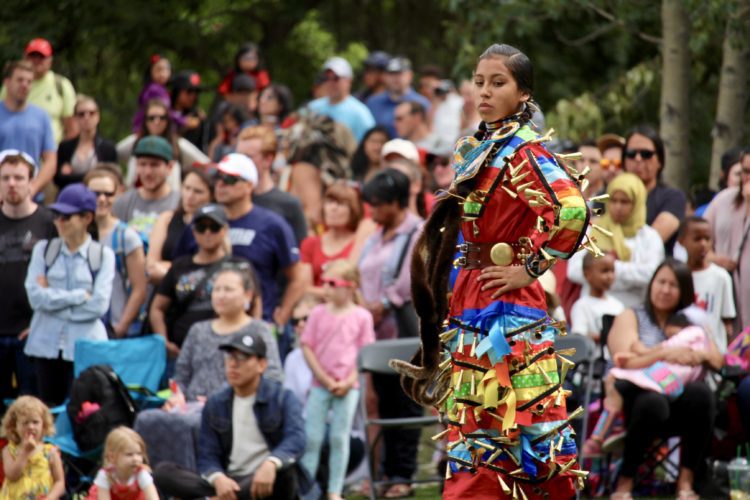
This article originally appeared in The National Post.
By Chris Sankey, April 28, 2022
Far too often, I watch Indigenous leaders who have dedicated their entire lives to community, politics and business being disrespected and ignored. I honestly feel like the younger generation, Indigenous and non-Indigenous alike, does not give a darn about whether our culture and our people live or die.
People who have accomplished little for Indigenous people nonetheless win awards and are celebrated. Why? The nonsense that I have witnessed and experienced over the last three years is absurd. I have seen a teenager, paid activists and movie stars be celebrated for “standing up” for Indigenous communities, all while causing us much more pain than good.
I’m sick of seeing our people struggle when solutions are within reach. I am tired of watching individuals continuously mislead our communities and our governments. I would not follow many of them into ankle-deep water. Business is not rocket science, but our communities are continuously led down the wrong path.
The status quo is unsustainable. Post-secondary education has become a revolving door riddled with a lack of Indigenous academic achievements. Too many young people enter college and university only to fail — and some of those who graduate have clearly been given a pass.
This is not in any way helpful. Our students must be held to high standards. Our workforce stays weak because we push young people through their studies, while providing them with little to no practical experience.
Meanwhile, Indigenous actors are paid to block Canada’s responsible resource development sector, thus depriving their own communities of economic opportunities. Even our culture is being dragged into these struggles. Indigenous people using their regalia — which the media absolutely love — at rallies protesting projects with majority Indigenous support is insulting to our people. My uncles and aunts taught me that we never use our regalia other than at a ceremony marking a death in the community, a potlatch or a feast.
In my community, we have hereditary chiefs who get elected by our people in band council elections. Other individuals say they practice their hereditary lifestyle, and claim to know more than our elected representatives, but never get elected when they run for council.
Many Indigenous leaders in the cities have never been successful in leadership roles at the community level. They do not represent the people in the traditional territories.
These folks are immersed in the white “woke culture,” but they have the nerve to tell us that what we are doing is wrong. I said it before, and I will say it again: I don’t care who you are, if your sole objective is to gain control of Indigenous political debates for personal gain, I have no respect for you — period.
I also have no more patience for people who constantly ask me how I feel — about Canada, government policy and reconciliation. There is a place and time for that, but not now. Our people are hurting. They need jobs. They need wealth. They need freedom from our paternalistic government. If the Assembly of First Nations expects to be successful, it should stop talking about our feelings and start talking about economic opportunities.
New Canadians are buying up land and businesses left, right and centre, while our people fight amongst ourselves over mundane issues. Our internal battles scare away business opportunities, overcoming our efforts to attract investment and jobs. Let me be clear on something: the rest of the world does not care whether we are successful or not.
None of our potential partners are impressed by protests, fancy rhetoric and the use of cultural artifacts. They are business people. Our resources and our business opportunities are valuable, but have their limits. There are other places to invest; other people welcome their interest and commitment.
We allow small minorities to destroy opportunities for the Indigenous majority. These protesters are putting our futures at risk, and condemning us to permanent poverty and cultural destruction.
There are opportunities that are finally available to us after years of being pushed into the background. We, as a people, must either start coming together and get down to business, or we will once again watch the world move on without us.
When my time comes, I want to know that the people who love me the most will miss me. I want to have done everything I could to make sure they are OK and that future generations will be prosperous. This means standing up for our communities and our people, despite the constant attacks from outsiders and the loudest local opponents. This means saying to self-serving outsiders to back off and leave us alone.
Chris Sankey is a former Lax Kw Alaams elected official, businessman and senior fellow at the Macdonald-Laurier Institute.




